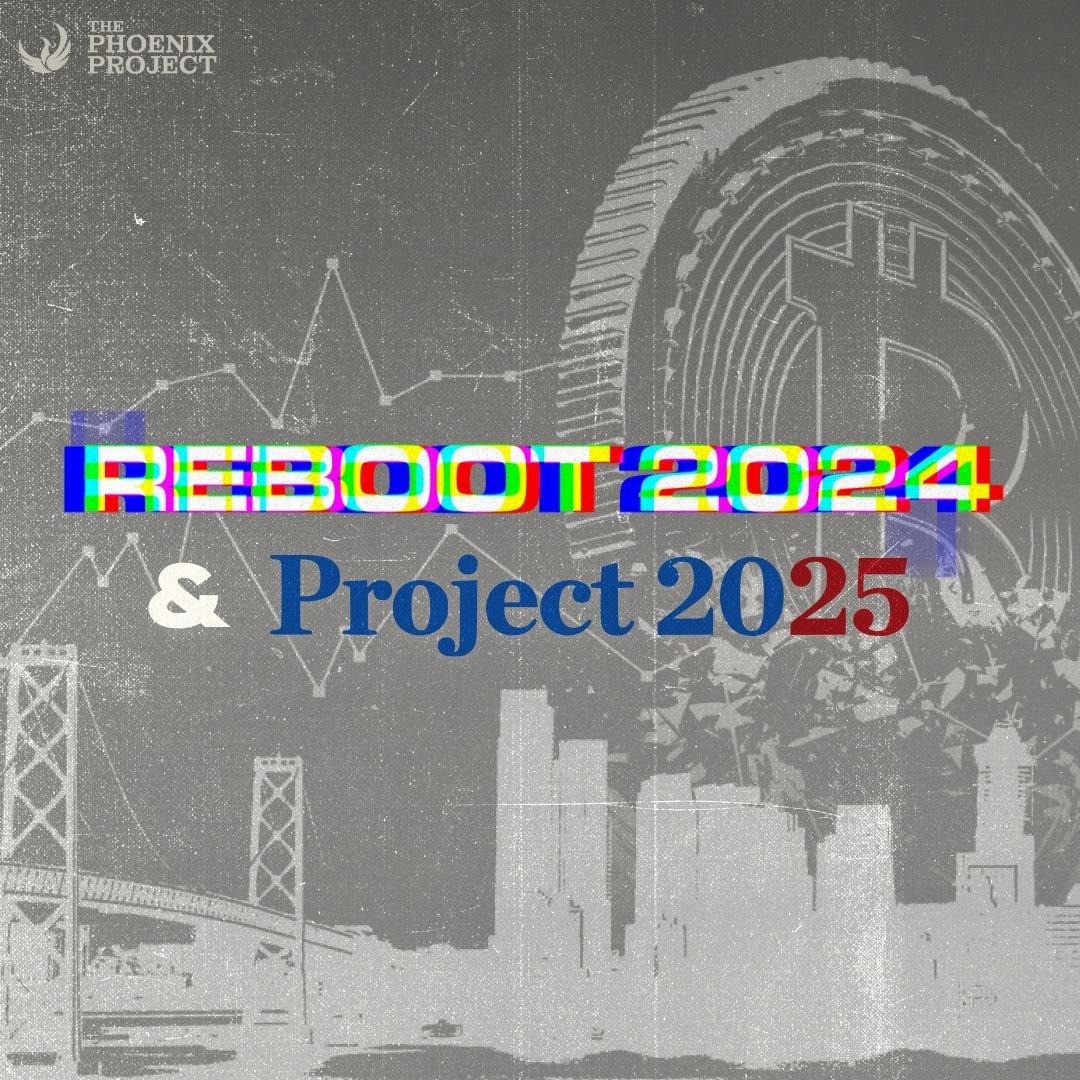
Phoenix Project
Sep 12, 2024

Eddie Kim covers San Francisco politics for the Gazetteer www.gazetteer.com, an online publication launched last spring with the aim of covering stories ignored by other media outlets. The Phoenix Project recently spoke with Kim about Reboot 2024: The New Reality, held September 4th and 5th at San Francisco’s Fort Mason Center.
Kim had a front-row seat at an event that spotlighted the Heritage Foundation, the right-wing think tank that authored Project 2025, a blueprint for a second Trump Administration, and tech leader and local political provocateur Garry Tan. The interview has been edited for brevity.
What kind of crowd attended Reboot?
The crowd looked like that of every other tech conference that’s been held in San Francisco. What really surprised me was that the website’s language was so very strong, so very radical. Unfortunately, it did not quite live up to that billing. It was platforming the tech industry perspective of how things are going wrong. How things are not pro-capitalism enough and anti-regulation enough and not pro-individualism enough. If you don’t get it, you are part of the problem and standing in the way of progress.
What was the most radical thing you did hear?
The morning session about crypto and politics was conservatism out in the open. They were very bullish on the fact that the crypto industry is increasingly accounting for a lot of the funding given to PACs. The cash is nearly half of that given by corporate donors.
At a later panel, it was noted that the [venture capital} community’s support of Trump is now more public than ever. A lot of tech workers are normal liberals, but that the VC class and leadership class is going public with sentiments that have long existed. There is an undercurrent of anti-authoritarianism against the “enemies of progress” that Reboot is talking about.
Beyond that, there was a lot of discussion of topics that have been embraced by the far right like pro-natalism, the concern about declining birthrates, and the championing of traditional relationships between men and women as being key to sustaining the nation, and the need to significantly expand the defense budget.
Was San Francisco mentioned?
San Francisco obviously came up during Garry Tan’s keynote talk. He went on his normal rant about how violence against Asian elders is what propelled him into local politics. How using his influence and his capital are a key step in getting others in the tech industry engaged in politics.
San Francisco came up in [the context] of the cultural fight over who gets to run this nation.
Kevin Roberts, the president of the Heritage Foundation, said the ideological people in tech, the people in the room, are the ones who will pull the nation forward. That he is comfortable that he can see eye-to-eye with these people. That was jarring because he had spent three minutes prior defending Project 2025.
Did they use the word ‘investment’ when they spoke about politics?
Garry Tan was clear that there was a moral imperative to use personal capital to shape local politics. The money is not just going to fund specific policies or candidates, it’s about determining who gets to pull the levers of government.
This may be worrying to folks who see San Francisco as a bastion of liberalism.
How are tech leaders balancing between ideological initiatives and pushing for self-serving policies?
A lot of conversations around the country have become more ideological. The tech industry is a part of that. Ideology and policy are now intertwined. They are trying to sell their own vision of the world along with the policies that are products of that vision. They’re probably as much results-focused as the oil and real estate barons of the past.
This is perhaps the most influential and the most powerful industry in the world. And yet, they’re talking about being anti-authoritarian and radical outsiders, asking the question “why is everyone else so stupid?”
Earlier tech leaders like Bill Gates marketed themselves differently to the public. They emphasized that part of being a philanthropist is staying out of the dirty waters of politics. Social media has had an outsized impact on how people talk nowadays. A lot of tech leaders believe they can now speak openly and they can do it in a way that is critical and very pointed. And it’s embraced as being radical and honest.
How much of what is going on now is a reaction to the social justice movements of 2020?
It’s hugely related. Research shows that extremist politics blooms during a time of scarcity, disorders and disasters. What does that do to the leaders of industry? In the case of tech leaders, the VC and founder class, they’re not going to take up Tiki torches and go out into the streets. But they are going to replicate forms of radical protest; of divorcing themselves from social norms and industry norms as a reaction to what they believe are widespread failures of the establishment.
It’s convenient to have targets like ‘the establishment’ because it’s amorphous. In San Francisco, they paint the establishment as the progressives. It’s a reaction to find easy solutions that fit into their worldview. Reboot was a reactionary vehicle for existential anxieties, fueled by uncertainty and the need to find answers fast in the face of real or perceived scarcity.





